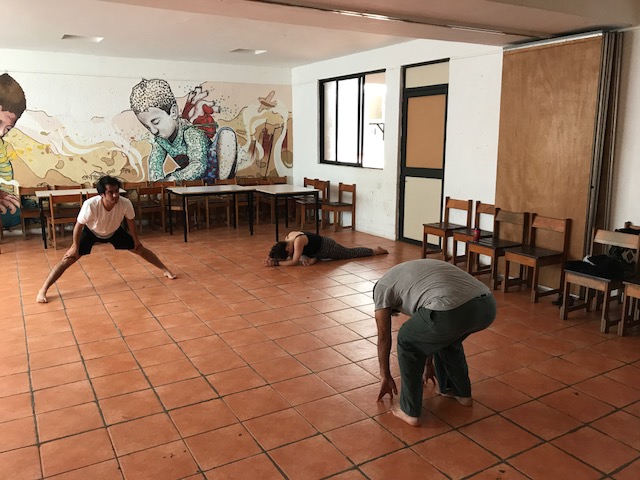by Joshua Truett, PhD Candidate Performance/History/Theory Department of Theatre & Sexuality Studies
Project Location (Summer 2017): Juchitán de Zaragoza and Oaxaca de Juárez, Mexico
My mission as an artist/scholar is to create work that expands social discourse and instigates introspection about social and political issues. I was born in San Diego, less than twenty miles from the Mexican border. During my childhood in Southern California, I became fascinated by intersections: the places where peoples, cultures, and ideologies converge. This is reflected in my academic research and creative work, which is situated between the intersections of various art forms—prerecorded media and live performance, and the borders between theatre, dance and film.
My dissertation research focuses on a study of the festival performances of the indigenous populations of the Isthmus of Tehuantepec in Oaxaca, Mexico. In particular I focus on the festivals, known as velas, in the Zapotec town of Juchitán de Zaragoza. During my third fieldwork trip to the city, I was part of a group of artists who began collaboration on a project to explore issues around borders and immigration. We were later invited by a local arts and educational organization, El Foro Ecológico Juchiteco, to use their community center for rehearsing and devising the production, which the Global Mobility Project grant helped to support in the summer of 2017. The artists involved in the project hail from the United States, Mexico, and Cuba. Together we have initiated an investigation into our collective experiences as migrants and border dwellers.
During our work over the summer we explored how borders and border crossings can be experienced not only physically, but also conceptually and spiritually. We began by asking how individuals navigate distances, mobility, and cultural clashes in fluid, creative, and productive ways that counter the common narratives constructed about migrants by politicians and mass media, especially in the United States and Europe.
These questions then contributed to a wider discussion of the challenges and opportunities created through national and transnational mobility, gaining insight into how these dynamics have affected our own individual lives and the communities we live in. The material we generated from our own experiences became the foundation for the original text and dance that we created during the workshop, which we plan to fuse with video and film as the project progresses. The performance we are creating will be multilingual, including Spanish, English, and Zapotec text.
At the end of our two-week workshop, we were challenged by the realties of creating a transnational collaborative project in which the collaborators involved live in four different cities, separated by thousands of miles. How do we continue the creative work when we are not together in the same place? What are the hurdles to collaborating in a digital rather than physical space? In the future, how can we sustain a tour of a performance with the challenges of visas, “travel bans,” and the high costs of touring? What is the best medium to contain and share our work, so that it can circulate most widely? We are still seeking answers to these and the other questions raised during our summer workshop.
Postscript
A couple months after the workshop, in September of 2017, two massive earthquakes and numerous large aftershocks rocked the southern region of Mexico. The Isthmus and Juchitán de Zaragoza were hit especially hard, with over 100 deaths and countless numbers of buildings and other structures destroyed or damaged, including the complete leveling of a large section of the city hall, the palacio municipal. In a year that has witnessed so many natural disasters, the tragedy in Juchitán has gone under reported, and it has quickly faded from the headlines. However, the challenges faced by the inhabitants of the Isthmus persist and the need for aid and supplies is still urgent. Please consider donating to one of the organizations who are mentioned in this New York Times article.




